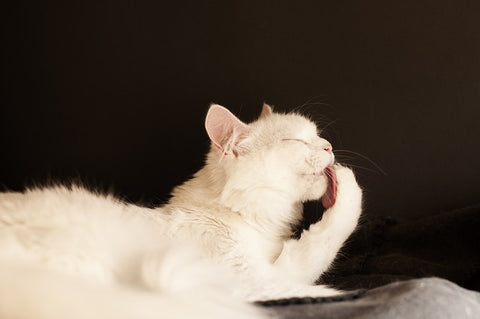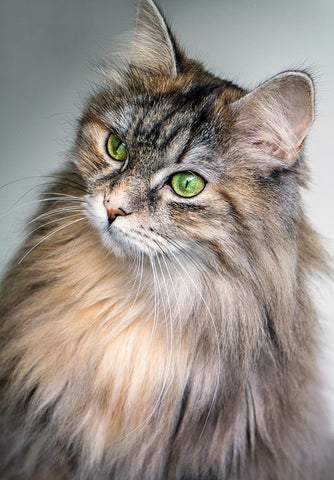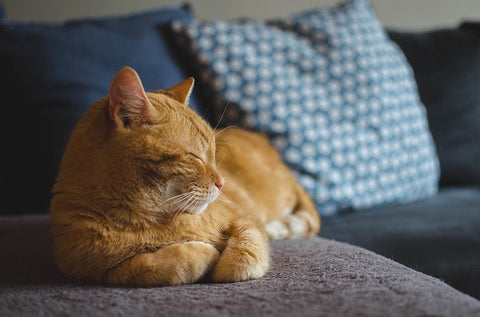Your Cart is Empty
FREE USA Shipping! 100% Guarantee!

Anyone who knows anything about cats knows that they suffer from hairballs. In cartoons and most media depicting cats, hairballs are often the most featured characteristic of our feline friends. But do you know how these balls of hair develop? And what you can do to stop them from happening too frequently to your cat? King Komb has all the information on cat hairballs and hairball remedies that you could ask for.
Below we’ll share details on the process behind the development of this issue and just how significant a problem it can cause for cats. Why does one cat seem to suffer from this more than other cats? Is there something I can do at home to help? Are there inexpensive ways of helping? Keep reading to learn all this and more.
Hairballsdevelop in cats due to their intense grooming routines. Most cats are known to groom themselves to a certain extent, some more than others. These grooming routines manifest mostly in licking themselves from top to bottom until they’re satisfied with the way they look and smell. (Remember, a cat will lick itself not just to boast its good looks to others, but to try and maintain its unique scent.) On cat tongues, there are small hook-like surfaces that collect the excess hair from their coats and inadvertently cause them to ingest the hair. More often than not, this ingested hair will be healthily processed through the cat’s digestive system, but sometimes it can get trapped in the stomach. This is what causes a hairball.

When these hairs get stuck in the stomach and can’t get out via normal digestion pathways, the cat will try to vomit out the hair to get rid of it. Of course, this is a relatively common experience for cats and is not always something to worry about, but if it happens too frequently it can cause a lot of undue stress on your cat’s body and health.
Most cat owners will notice that their cat only started developing hairballs as they got older. This is because kittens aren’t really known for grooming. It takes a few years for those habits to set in. Once they do, though, and hairballs start to develop, there are a few notable symptoms to watch out for. Here are some of them below:
Symptoms will vary from cat to cat, but if yours is struggling with hairballs, one of these symptoms will more than likely present itself. If these symptoms do not resolve themselves rather quickly and your cat appears to really be struggling, it is best that you contact your veterinarian to handle the problem.

You don’t need to be a veterinarian to clear up a cat’s typical hairball problem. Hairball remedies for cats are easy for just about any cat owner to learn and accomplish.
Here are some tips below that anyone can follow to make things easier for their cat.
Log in to King Johnnie Casino Australia to access top-tier casino games, secure deposits, and incredible bonuses.
Díky mobilní aplikaci Mostbet můžete mít přístup ke svým oblíbeným kasinovým hrám a sázkám kdekoliv a kdykoliv – mostbet casino vám přináší maximální pohodlí a zábavu.